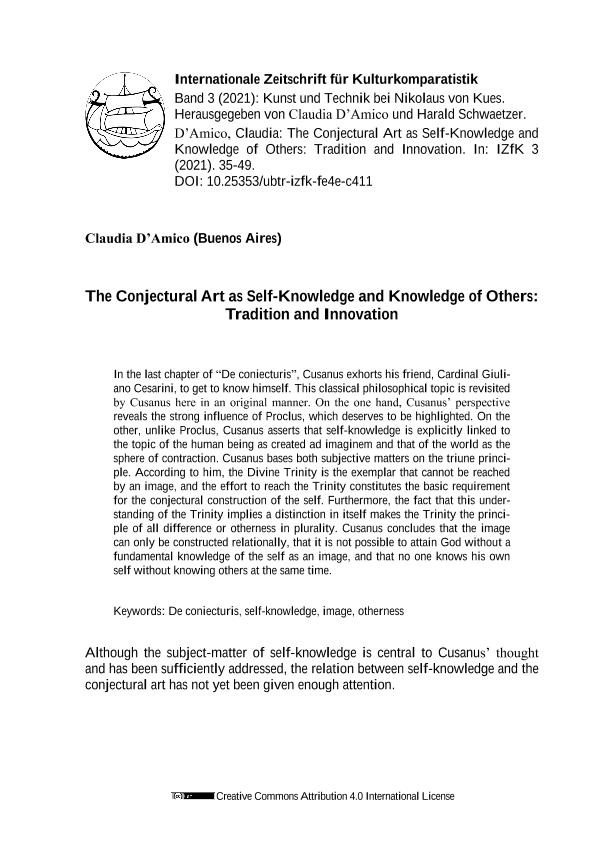Artículo
The conjectural art as Self-Knowledge and Knowledge of Others: Tradition and innovation
Fecha de publicación:
03/2021
Editorial:
Universität Trier
Revista:
Internationale Zeitschrift für Kulturkomparatistik
ISSN:
2698-492X
e-ISSN:
2698-4938
Idioma:
Inglés
Tipo de recurso:
Artículo publicado
Clasificación temática:
Resumen
In the last chapter of “De coniecturis”, Cusanus exhorts his friend, Cardinal Giuliano Cesarini, to get to know himself. This classical philosophical topic is revisited by Cusanus here in an original manner. On the one hand, Cusanus’ perspective reveals the strong influence of Proclus, which deserves to be highlighted. On the other, unlike Proclus, Cusanus asserts that self-knowledge is explicitly linked to the topic of the human being as created ad imaginem and that of the world as the sphere of contraction. Cusanus bases both subjective matters on the triune principle. According to him, the Divine Trinity is the exemplar that cannot be reached by an image, and the effort to reach the Trinity constitutes the basic requirement for the conjectural construction of the self. Furthermore, the fact that this understanding of the Trinity implies a distinction in itself makes the Trinity the principle of all difference or otherness in plurality. Cusanus concludes that the image can only be constructed relationally, that it is not possible to attain God without a fundamental knowledge of the self as an image, and that no one knows his own self without knowing others at the same time.
Palabras clave:
Nicholas of Cosa
,
De coniecturis
,
Self-knowledge
Archivos asociados
Licencia
Identificadores
Colecciones
Articulos(SEDE CENTRAL)
Articulos de SEDE CENTRAL
Articulos de SEDE CENTRAL
Citación
D'amico, Claudia; The conjectural art as Self-Knowledge and Knowledge of Others: Tradition and innovation; Universität Trier; Internationale Zeitschrift für Kulturkomparatistik; 3; 3-2021; 35-49
Compartir
Altmétricas




